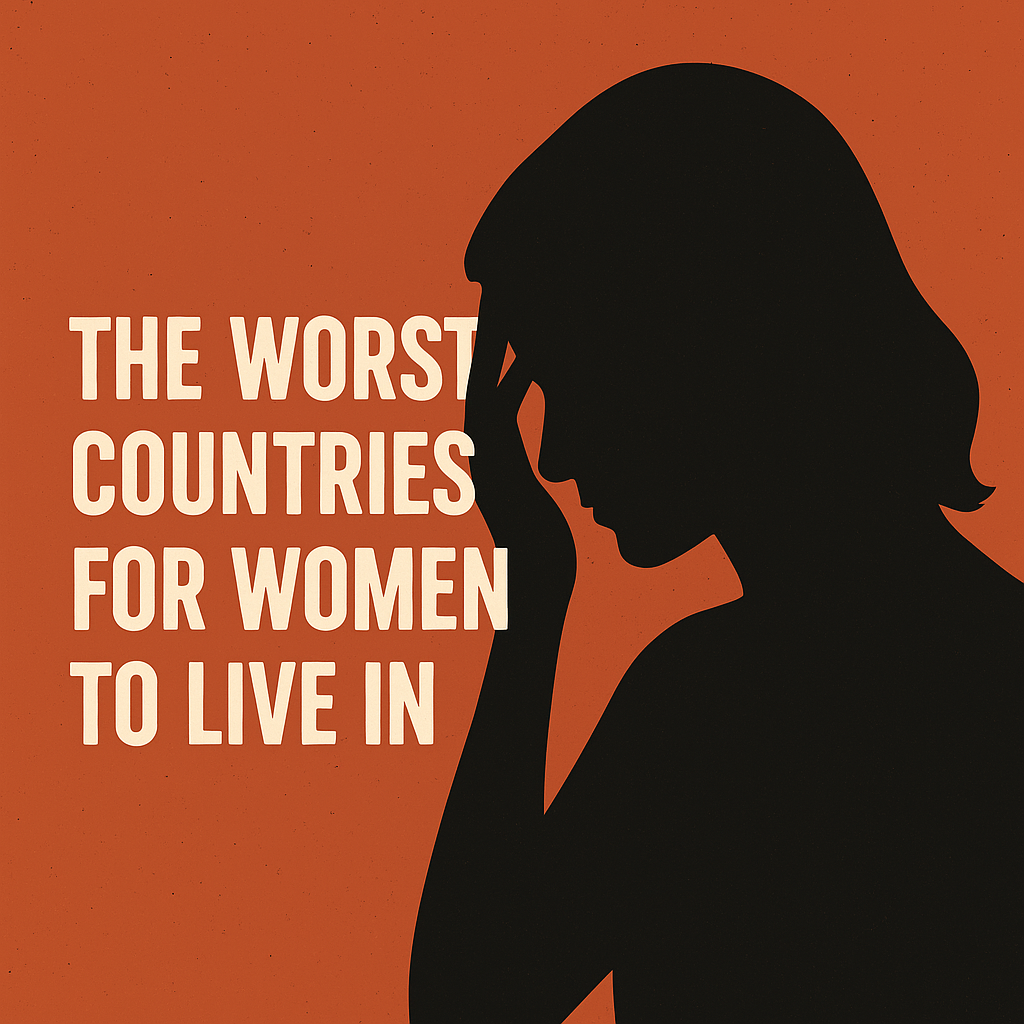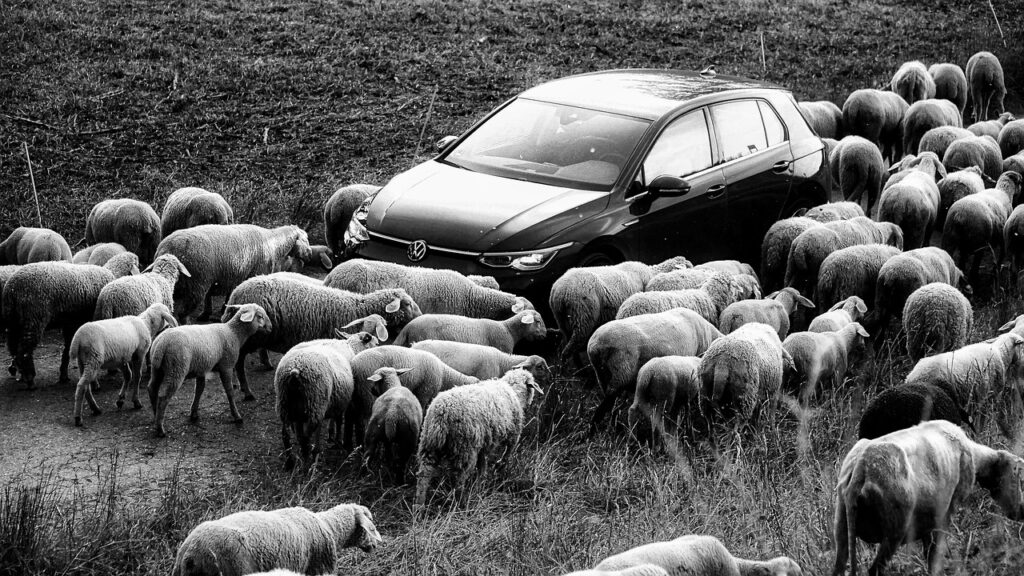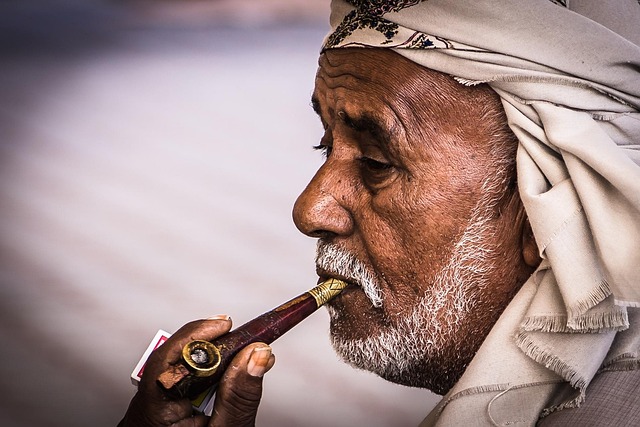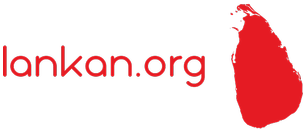The Most Challenging Countries for Women to Live In – And Why?

Despite global progress in gender equality, many women around the world still face extreme challenges due to cultural, political, and legal inequalities. In some countries, systemic discrimination, violence, and lack of basic rights make daily life especially difficult for women. Based on reports from international organizations like the UN, World Economic Forum, and Amnesty International, here are some of the most difficult countries for women to live in—and the reasons why. 1. Afghanistan Why it’s difficult:After the Taliban regained control in 2021, Afghanistan has seen a sharp regression in women’s rights. Girls are banned from attending school beyond grade six, women are prohibited from working in most sectors, and cannot travel without a male guardian. Women’s visibility in public life has been drastically reduced, and punishment for non-compliance with strict dress codes is severe. 2. Yemen Why it’s difficult:Years of civil war have devastated Yemen’s infrastructure, including healthcare and education systems. Women face deeply entrenched patriarchal norms, and child marriage is widespread. Domestic violence often goes unpunished, and women’s mobility and access to justice are highly restricted. 3. Saudi Arabia Why it’s difficult:While Saudi Arabia has made recent reforms—such as allowing women to drive and easing male guardianship laws—many restrictions still remain. Women continue to face discrimination in personal status laws, unequal rights in marriage, divorce, and inheritance, and limited political participation. 4. Democratic Republic of Congo (DRC) Why it’s difficult:Sexual violence has been used as a weapon of war in the DRC for decades. Women are often victims of rape and trafficking, especially in conflict zones. Access to healthcare, justice, and economic independence is extremely limited for women, especially in rural areas. 5. Pakistan Why it’s difficult:In parts of Pakistan, especially rural regions, women suffer from honor killings, forced marriages, and domestic abuse. Although legal protections exist, enforcement is weak. Girls’ education is often deprioritized, and women’s participation in the workforce remains low. 6. Somalia Why it’s difficult:With no stable government and ongoing conflict, Somalia remains one of the most dangerous places for women. Female genital mutilation (FGM) is widespread, access to maternal healthcare is minimal, and there is little to no recourse for victims of gender-based violence. 7. India (Certain Regions) Why it’s difficult:India has made great strides in women’s education and empowerment, but serious issues persist. In some areas, crimes like rape, acid attacks, dowry-related violence, and human trafficking remain rampant. Patriarchal attitudes and slow judicial processes often prevent justice for victims. Addressing the Root Causes The difficulties women face in these countries are rooted in a combination of: The Path Forward Efforts to improve conditions for women must be multi-faceted: Final Thoughts:Highlighting the challenges women face around the world isn’t about blaming cultures or countries—it’s about advocating for dignity, safety, and equality for all. Every woman, regardless of where she’s born, deserves the right to live freely and fully.
A Fact of Narendra Modi: Leadership and Vision

Narendra Modi, the 14th Prime Minister of India, is one of the most influential and polarizing figures in modern Indian politics. Known for his dynamic leadership style and transformative vision, Modi’s political journey is marked by his rise from humble beginnings to becoming one of the most prominent leaders in the world today. Early Life and Political Beginnings of Narendra Modi Born on September 17, 1950, in Vadnagar, a small town in Gujarat, Modi came from a modest family. His early years were spent in a small tea stall, where he helped his father. This background shaped his hardworking and disciplined nature, traits that would come to define his leadership style. Modi’s interest in politics began at a young age. He joined the Rashtriya Swayamsevak Sangh (RSS), a Hindu nationalist organization, which played a crucial role in shaping his ideological path. His association with the RSS provided him with valuable political training, and over time, he rose through the ranks, gaining a reputation for his organizational skills and commitment to the Hindu cause. The Chief Minister of Gujarat: A Prelude to National Politics In 2001, Modi became the Chief Minister of Gujarat, succeeding Keshubhai Patel. His tenure was marked by economic growth, infrastructure development, and significant improvements in the state’s governance. However, his tenure was also marred by controversy, especially the 2002 Gujarat riots, which led to significant criticism regarding his handling of the situation. Despite this, he managed to maintain a strong political base and won several state elections. Under Modi’s leadership, Gujarat became one of India’s fastest-growing states. He championed the cause of economic reforms and infrastructure development, while positioning himself as a leader capable of delivering growth and prosperity. Rise to National Prominence Modi’s breakthrough on the national stage came in 2014 when he led the Bharatiya Janata Party (BJP) to a resounding victory in the general elections. His campaign, focusing on economic development, good governance, and national security, struck a chord with the masses, particularly the youth and urban voters. His promise of “Ache Din” (Good Days) resonated with many who were frustrated with the slow pace of progress under the previous government. The 2014 victory marked the beginning of a new era in Indian politics. Modi’s leadership style was distinct, often characterized by decisive action, strategic communication, and an unwavering commitment to his vision for India’s future. His focus on economic reforms, including the introduction of the Goods and Services Tax (GST), demonetization, and initiatives like “Make in India,” “Digital India,” and “Swachh Bharat Abhiyan,” aimed at transforming the country’s infrastructure and economy. Modi’s Foreign Policy: A Global Player On the global stage, Modi’s foreign policy has been marked by a strong emphasis on strengthening India’s international ties. His leadership has seen India assert itself more confidently on the global stage, strengthening ties with major powers like the United States, Japan, and Australia, while also focusing on regional issues, particularly with neighboring countries like China and Pakistan. His diplomatic efforts, particularly through initiatives like the “Act East” policy and enhancing ties with the Middle East, have bolstered India’s global standing. Modi’s push for a permanent seat on the United Nations Security Council (UNSC) and his emphasis on climate change and sustainable development have further established him as a statesman on the world stage. The 2019 Victory and Second Term In 2019, Modi led the BJP to an even more decisive victory, securing a second consecutive term. This victory was largely attributed to his appeal to the masses, his success in tackling corruption, and his ability to unite the country with his vision of a strong and prosperous India. During his second term, Modi’s government pushed forward with ambitious reforms, including the controversial abrogation of Article 370, which revoked Jammu and Kashmir’s special status, and the passage of the Citizenship Amendment Act (CAA), both of which sparked significant debate and protests across the country. A Polarizing Figure Modi’s leadership has often been a subject of intense debate. His supporters praise his decisive leadership, his focus on national security, and his ability to push through large-scale reforms. His leadership has redefined the role of the Prime Minister, making him the central figure in Indian politics, with a strong hold over the country’s narrative. However, critics argue that his governance style is overly centralized, and his policies, particularly regarding religious and social issues, have contributed to divisions within Indian society. Modi has been accused of fostering an environment where minority rights are undermined, particularly in the context of his association with Hindu nationalist ideologies. The Legacy of Narendra Modi As Prime Minister, Modi has left an indelible mark on India’s political landscape. Whether admired or criticized, his influence cannot be overstated. His legacy will likely be debated for years to come, with supporters hailing him as a visionary who transformed India and critics warning of the challenges that his policies and style may leave behind. In conclusion, Narendra Modi is more than just a political figure; he represents a shift in Indian politics, driven by a clear vision of economic growth, nationalism, and a strong India on the world stage. His story is one of ambition, resilience, and controversy, and it will continue to shape the political and social narrative of India for generations to come.
Bizarre Laws Around the World That Will Blow Your Mind

The world is full of strange and unexpected laws—some so bizarre that they seem almost unbelievable. From weird bans to outdated regulations, here are some of the strangest laws still in effect today! 1. It’s Illegal to Chew Gum in Singapore Singapore has banned chewing gum since 1992 to maintain cleanliness in public spaces. You won’t find gum for sale anywhere, and getting caught importing or selling it could result in hefty fines! 2. You Can’t Wear High Heels at Historic Sites in Greece If you’re planning a trip to Greece, leave your high heels at home! The country has banned high heels at ancient sites to prevent damage to its historical treasures. 3. No Whistling at Night in Canada In the city of Petrolia, Ontario, it’s illegal to whistle or sing in public between 11 PM and 7 AM. Apparently, the law aims to maintain peace and quiet for residents. 4. It’s a Crime to Forget Your Wife’s Birthday in Samoa Husbands, take note! In Samoa, forgetting your wife’s birthday can legally get you into trouble. While the consequences aren’t severe, it’s certainly an unusual law. 5. You Can’t Own Just One Guinea Pig in Switzerland Switzerland considers guinea pigs social animals, and it’s illegal to own just one. If you want a guinea pig, you must have at least two to prevent loneliness. 6. No Selfies With Buddha in Sri Lanka Tourists in Sri Lanka should be careful when taking photos near Buddha statues. Turning your back on Buddha for a selfie is considered disrespectful and could lead to legal trouble. 7. Don’t Feed Pigeons in Venice, Italy Feeding pigeons in Venice’s St. Mark’s Square is against the law. The city banned it to reduce damage to historical buildings caused by pigeon droppings. 8. You Can’t Die Without a Burial Plot in France Some towns in France, including Cugnaux, have passed laws making it illegal to die unless you’ve already secured a burial plot. The law was a response to overcrowded cemeteries. 9. It’s Illegal to Drive a Dirty Car in Russia In Russia, driving around with a filthy car could land you a fine. The law is meant to maintain public hygiene, though enforcement varies by city. 10. You Must Smile in Milan, Italy – Unless at a Funeral In Milan, there’s an old law that requires people to smile at all times, except at funerals or in hospitals. While not strictly enforced, it’s still technically on the books! The Strangest Laws Are Often the Most Interesting While some of these laws may seem absurd, they often have historical or cultural reasons behind them. Have you ever encountered a strange law while traveling? Let us know in the comments!
The Most Corrupt Countries in the World – Ranked

Corruption is a global issue that affects economies, governance, and the daily lives of citizens. Some countries are notorious for their deep-rooted corruption, making them difficult places to do business, travel, or even live. Here’s a ranking of the most corrupt countries in the world, based on corruption perception indices, reports from organizations like Transparency International, and real-world case studies. 1. Somalia – A Nation in Perpetual Crisis Somalia has consistently ranked as one of the most corrupt countries. The lack of a stable government, widespread bribery, and lawlessness make it nearly impossible to establish transparency. 2. South Sudan – A Corrupt Leadership Despite being one of the world’s youngest countries, South Sudan has already established itself as one of the most corrupt. Government officials are frequently accused of siphoning public funds while the majority of the population struggles with poverty. 3. Venezuela – A Resource-Rich Country Plagued by Graft Despite having some of the largest oil reserves in the world, Venezuela is crippled by corruption. Government mismanagement and bribery are rampant, leading to a collapsed economy and widespread poverty. 4. Syria – Corruption Amidst Conflict Syria’s ongoing civil war has created an environment where corruption thrives. Government officials and warlords alike engage in bribery, black markets, and financial mismanagement. 5. North Korea – A Secretive Regime of Corruption North Korea operates under a tightly controlled dictatorship where corruption is ingrained in daily life. From bribing officials for basic necessities to massive state-level corruption, the country remains one of the worst in terms of transparency. 6. Haiti – Political Instability Fuels Corruption Haiti has struggled with corruption for decades, with government officials often accused of embezzlement and fraud. This has significantly hampered the country’s development and disaster recovery efforts. 7. Democratic Republic of the Congo – Wealth for the Few Despite being rich in natural resources, the DRC remains one of the poorest countries due to corruption. Government elites control wealth while ordinary citizens suffer from poor infrastructure and services. 8. Libya – A Lawless Economy Since the fall of Gaddafi, Libya has been in turmoil, with various factions exploiting the lack of a central government. Corruption, smuggling, and bribery are rampant. 9. Yemen – War and Corruption Go Hand in Hand Yemen’s ongoing war has only worsened corruption. Foreign aid often disappears before it reaches the needy, and bribery is a way of life. 10. Afghanistan – A Corrupt System Deeply Embedded Despite international efforts to rebuild the country, Afghanistan remains one of the most corrupt nations. Bribes are common in government services, and officials misuse foreign aid for personal gain. The Global Impact of Corruption Corruption doesn’t just affect individual countries—it has worldwide consequences. It discourages investment, increases poverty, and weakens governance. While efforts are being made to fight corruption, the struggle is far from over. Would you visit any of these countries, or do you think the rankings are fair? Let us know in the comments!
worst places in Sri Lanka not to visit

Sri Lanka is a beautiful island with many breathtaking destinations, but like any country, there are places that tourists should avoid due to safety concerns, lack of attractions, or poor conditions. Here are some of the worst places in Sri Lanka not to visit: Certain Areas in Colombo’s Slums Densely Forested Regions Without Guides Certain Parts of Mannar Puttalam Lagoon’s Polluted Areas Underdeveloped Beaches in Kalpitiya Certain Parts of Jaffna Peninsula Badly Maintained Roads in Central Highlands Minneriya National Park During Extreme Drought Yala Buffer Zones Industrial Areas Like Sapugaskanda Final Thoughts Sri Lanka is generally a safe and welcoming country, but avoiding these areas can help ensure a smooth and enjoyable trip. If you plan to visit off-the-beaten-path locations, always consult locals or travel guides for up-to-date advice.
Top 10 GDP Richest Countries in the World

The wealth of a country is typically measured using its Gross Domestic Product (GDP) per capita, which reflects the economic output per person. Countries with high GDP per capita usually have strong economies, well-developed infrastructure, and high standards of living. Based on the latest data, here are the top 10 richest countries in the world: Luxembourg Ireland Switzerland Norway United States Singapore Qatar Denmark Australia Netherlands Conclusion These countries have achieved high levels of economic success through strong industrial sectors, financial markets, and technological advancements. While GDP per capita is a key measure of wealth, factors like quality of life, income equality, and sustainability also play a vital role in defining a nation’s true prosperity.
Six-Hour Delay: United Airlines Scrambles After Pilot Flies Without Travel Passport

Media reports indicate that a United Airlines Boeing 787 aircraft flying from Los Angeles to China was forced to turn back after it was discovered that the pilot was flying without a foreign travel passport. The aircraft departed Los Angeles at 2 PM on Saturday with 257 passengers and 13 crew members, heading northwest across the Pacific Ocean towards Shanghai. However, after about two hours of flight, the aircraft turned back and returned to San Francisco, landing around 5 PM the same day, according to the FlightAware website. In a statement released about the incident, United Airlines noted, “The pilot did not have his travel passport on board the aircraft. That evening, we organized a new crew to transport our customers to their destination. Customers were provided with meal vouchers and compensation.” Nevertheless, the new crew departed again around 9 PM that same night and is expected to be approximately six hours delayed in reaching Shanghai. The translation captures the key details of the original Sinhala-language article, highlighting the unusual circumstance of a pilot flying internationally without the necessary travel documentation and the subsequent steps taken by the airline to manage the situation.
University lectures Guyendra Gayantha’s wife also passed away

Dr. N.D.G. Gayantha of the Psychology Department in the Faculty of Philosophy at Kelaniya University recently passed away in a road accident. Guyendra Gayantha’s wife also passed away today (26th). According to reports, she also died from a recent road accident, having sustained serious injuries and was in critical condition while receiving treatment in the intensive care unit of the Colombo National Hospital. The deceased Satisha Nilanthi was also a university lecturer. Recently, the doctor was returning from a trip to Jaffna, Nagadeepa with his three small children and family members of his wife when he unfortunately met with a motor vehicle accident on the Central Expressway. The van they were traveling in collided with a lorry, causing Dr. Gayantha to lose his life instantly. The three injured children, his wife, his wife’s younger brother, and his wife’s mother were receiving treatment at the Colombo National Hospital. His wife’s mother and the three children had already been discharged and recovered. Satisha Nilanthi, who was receiving treatment in the intensive care unit with critical injuries from the accident, had her brother also pass away recently, with his final rites conducted on the 24th in Boralesgamuwa Kanatte. Today, at the time of her passing, Satisha Nilanthi was 42 years old and a mother of three young children. So far, three individuals have lost their lives in this road accident. Satisha Nilanthi was an alumna of Gothami Balika Vidyalaya in Colombo and was born in 1983.
The 10 Worst Countries to Travel to and Why

While the world is full of breathtaking destinations, some countries pose significant challenges for travelers due to safety concerns, political instability, or poor infrastructure. Based on crime rates, political unrest, travel restrictions, and overall tourist experience, here are ten of the worst countries to visit in 2025. Afghanistan Why? Ongoing conflicts, terrorism, and a weak government make Afghanistan one of the most dangerous countries for travelers. Kidnappings, bombings, and attacks on foreigners are common, and most governments strongly advise against traveling here. Somalia Why? Somalia is plagued by piracy, terrorism, and lawlessness. The lack of a stable government has led to widespread violence, making it extremely unsafe for tourists. Infrastructure is minimal, and even humanitarian workers face serious risks. Syria Why? Due to the prolonged civil war, Syria remains a highly dangerous place for visitors. Ongoing military conflicts, bombings, and terrorist activities make travel here nearly impossible. Many historical landmarks have also been destroyed. Yemen Why? Yemen is experiencing one of the worst humanitarian crises in the world due to ongoing war and famine. The security situation is dire, with constant threats from armed groups and military attacks. Access to basic necessities like food and healthcare is extremely limited. South Sudan Why? South Sudan struggles with civil unrest, violent crime, and extreme poverty. Foreigners are often targeted for kidnappings and robberies. Additionally, poor infrastructure and lack of medical facilities make traveling here highly risky. Central African Republic (CAR) Why? The CAR is one of the least developed and most dangerous countries in the world. Armed groups control large areas, leading to frequent violence and instability. There is little to no tourist infrastructure, and safety cannot be guaranteed. Venezuela Why? Once a popular tourist destination, Venezuela now suffers from political chaos, hyperinflation, and high crime rates. Caracas, the capital, has one of the highest murder rates in the world, and shortages of basic supplies make travel difficult. North Korea Why? Traveling to North Korea is highly restricted, and tourists are constantly monitored by government minders. Any misstep, even an innocent one, could lead to imprisonment. Foreigners have been detained for minor infractions, making it a risky destination. Haiti Why? Haiti has been struggling with extreme poverty, crime, and political instability. Kidnappings for ransom are frequent, and law enforcement is often ineffective. Natural disasters like earthquakes and hurricanes also pose additional risks. Libya Why? Since the fall of its government, Libya has been a war-torn country with frequent clashes between militias. Terrorist groups operate freely, and kidnappings of foreigners are common. The lack of a stable government and law enforcement makes it an unsafe travel destination. Final Thoughts While adventure seekers may still be tempted to visit these locations, safety should always be a priority. Traveling to these countries could put you at risk of violence, crime, or even legal trouble. If you’re looking for a safe and enjoyable trip, it’s best to explore alternative destinations. Would you like recommendations for safer alternatives?
The Correct Way to Do SEO for Beginners

Search Engine Optimization (SEO) is essential for increasing website visibility and attracting organic traffic. If you are a beginner, following the right SEO strategies can help your website rank higher on search engines like Google. This guide will cover the correct way to do SEO step by step. Understand How Search Engines Work Before optimizing your website, you should know how search engines work. Google and other search engines use algorithms to crawl, index, and rank web pages. The better your website follows SEO best practices, the higher it will appear in search results. Keyword Research: The Foundation of SEO Keywords are the words and phrases people use to search for information. Finding the right keywords is crucial for SEO success. How to do keyword research: Use tools like Google Keyword Planner, Ubersuggest, or Ahrefs to find relevant keywords. Look for low-competition, high-search-volume keywords that match your content. Use long-tail keywords (e.g., “best SEO tips for beginners”) to target specific searches. On-Page SEO: Optimizing Your Website On-page SEO involves optimizing elements within your website to improve rankings. Important on-page SEO factors: Title Tags: Use your primary keyword in the page title. Example: “Best SEO Tips for Beginners – A Complete Guide.” Meta Descriptions: Write a short, compelling summary (150–160 characters) with keywords. URL Structure: Keep URLs short and keyword-rich (e.g., yourwebsite.com/seo-tips-beginners). Headings (H1, H2, H3): Organize content with headings, using keywords naturally. Content Optimization: Write high-quality, informative content. Use keywords naturally (avoid keyword stuffing). Add images with alt text (helps search engines understand images). Internal Linking: Link to other relevant pages on your website to improve navigation. Technical SEO: Making Your Website Search-Friendly Technical SEO ensures search engines can crawl and index your site properly. Key technical SEO tips: Mobile-Friendly Design: Ensure your website is responsive and looks good on all devices. Fast Loading Speed: Use tools like Google PageSpeed Insights to improve site speed. SSL Certificate: Use HTTPS for better security and rankings. XML Sitemap: Submit a sitemap to Google via Google Search Console to help indexing. Fix Broken Links: Use tools like Broken Link Checker to find and fix broken links. Off-Page SEO: Building Authority and Backlinks Off-page SEO involves activities outside your website that improve its authority. How to build backlinks: Guest Blogging: Write articles for other reputable websites and link back to your site. Social Media Sharing: Promote your content on social media platforms. Forum Participation: Engage in industry-related forums and share your expertise. Directory Submissions: List your site in trusted online directories. Local SEO: Optimizing for Local Searches If you have a local business, Local SEO helps attract nearby customers. Local SEO tips: Google My Business (GMB): Create and optimize your Google My Business profile. NAP Consistency: Ensure your Name, Address, and Phone number (NAP) are consistent across all platforms. Local Keywords: Use location-based keywords (e.g., “best digital marketing agency in [city]”). Customer Reviews: Encourage positive reviews on Google and other review platforms. Content Marketing: Creating SEO-Friendly Content Content is key to a successful SEO strategy. Follow these content marketing tips: Publish high-quality, original content regularly. Write blog posts, infographics, and videos that solve user problems. Update old content to keep it relevant. Use engaging headlines to attract clicks. SEO Analytics: Tracking Performance Monitor your SEO progress using analytics tools. Best tools for SEO tracking: Google Analytics: Tracks website traffic and user behavior. Google Search Console: Monitors website performance and search visibility. Ahrefs / SEMrush: Tracks keyword rankings and backlinks. Avoid Common SEO Mistakes Many beginners make mistakes that hurt their rankings. Avoid these errors: Keyword stuffing (overusing keywords unnaturally). Publishing low-quality, duplicate content. Ignoring mobile optimization. Buying low-quality backlinks (can lead to penalties). Not updating old content. Stay Updated with SEO Trends SEO constantly evolves, so keep learning and adapting. Follow SEO blogs like: Google Search Central Blog Moz Blog Neil Patel’s Blog Conclusion SEO is a long-term process that requires patience and consistency. By following these beginner-friendly SEO strategies, you can improve your website’s search rankings and grow your online presence. Start with keyword research, optimize your content, focus on technical SEO, build backlinks, and track performance. Would you like help optimizing your website with SEO tools? Let us know in the comments!
